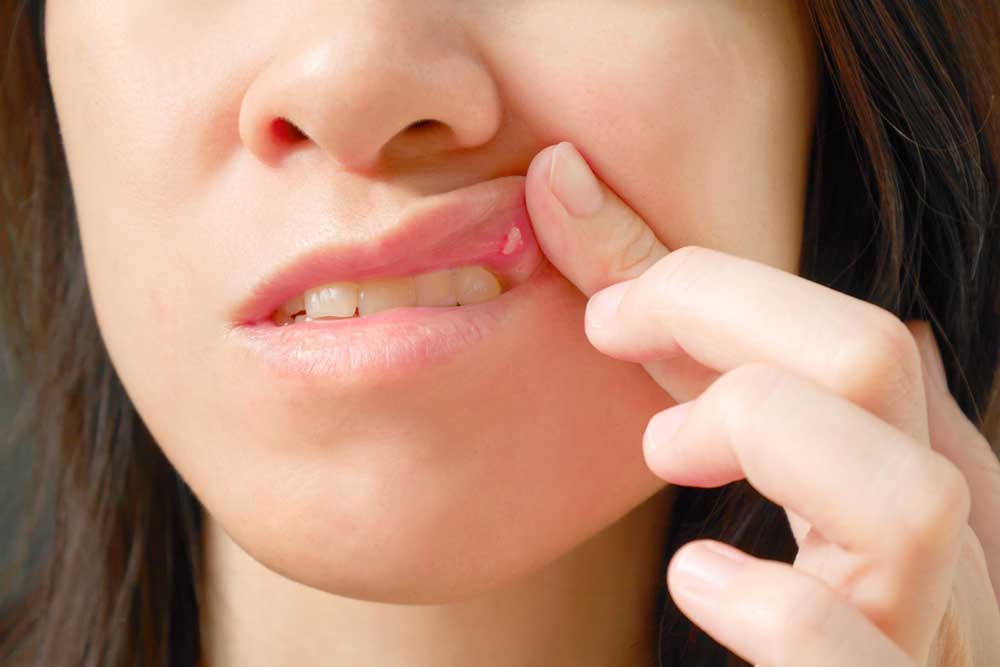Comprehensive Guide to Oral Ulcers: Causes, Prevention Strategies, and Effective Treatments
Discover comprehensive insights into oral ulcers, including their causes, methods of prevention, and effective treatment options. Learn how minor trauma, diet, stress, and oral hygiene impact ulcer formation, and explore remedies to ease discomfort and promote healing. Understand when to seek medical attention for persistent or severe cases to ensure proper care and avoid complications, enhancing overall oral health and well-being.

Comprehensive Guide to Oral Ulcers: Causes, Prevention Strategies, and Effective Treatments
Understanding Oral Ulcers: An In-Depth Overview of Causes, Prevention, and Remedies
Oral ulcers, also known as canker sores, are painful lesions that develop on various soft tissues inside the mouth. These include the palate (the roof of the mouth), gums, inner cheeks, tongue, and the floor of the mouth. While they are common and generally not serious, they can significantly impact daily activities such as eating, drinking, and speaking. Understanding the underlying causes, ways to prevent recurrence, and effective treatment options is essential for managing these uncomfortable sores.
Oral ulcers manifest as small, round or oval sores with a white or yellowish center surrounded by a red halo. Their size can vary, and they can be solitary or multiple. The discomfort from these ulcers can range from mild to severe, often described as burning, tingling, or throbbing pain. In some cases, especially with larger or multiple ulcers, individuals may experience additional symptoms such as swollen lymph nodes, low-grade fever, fatigue, and overall feeling of malaise.
Several factors can contribute to the development of oral ulcers. Common triggers include minor trauma from accidental biting, aggressive brushing, or dental procedures. Consuming overly hot, spicy, or acidic foods can irritate the delicate mucous membranes, leading to ulcer formation. Emotional stress and fatigue often exacerbate the condition, highlighting the link between mental health and oral health. Dental appliances such as braces, dentures, or ill-fitting orthodontic devices can cause mechanical injury to the oral tissues, contributing to ulcer development.
It’s important to recognize that oral ulcers are more than just minor inconveniences. They can interfere with eating, drinking, and speaking, affecting daily life quality. While many cases are mild and heal spontaneously within a week or two, some require medical intervention, especially if they are recurrent, large, or persistent beyond three weeks. Home remedies can be effective for minor ulcers, providing relief from pain and discomfort without the need for prescription medications.
Types of Mouth Ulcers Requiring Medical Attention
Minor ulcers: These are the most common form, recur up to four times annually, and tend to heal on their own within about a week. Typically seen in teenagers and young adults, they appear as small greyish centers with red borders and are not contagious.
Major ulcers and cold sores: These are larger, more painful, and often last longer. They are contagious and linked to viral infections, such as herpes simplex virus. They may also be associated with stress or immune suppression. People with recurrent ulcers tend to experience them more frequently and require more targeted treatments.
Common Causes of Minor Oral Ulcers
Medications taken during viral infections can trigger ulcer formation.
Mechanical tissue injury from dental devices like braces, ill-fitting dentures, or sharp tooth edges.
Dietary sensitivities, especially to acidic foods such as citrus fruits and tomatoes.
Lack of essential nutrients, particularly Vitamin B12, folic acid, and iron, increases vulnerability.
Use of toothpaste or mouthwash containing Sodium Lauryl Sulfate (SLS), which can irritate mouth tissues.
Triggers and Management of Cold Sores
Stress is a primary trigger for herpes simplex virus reactivation, leading to cold sore outbreaks.
Weak immune system due to illnesses, fatigue, or medication increases susceptibility.
Deficiencies in trace elements such as zinc and vitamins like B12 can predispose individuals to outbreaks.
Pre-existing digestive conditions like Celiac disease or Crohn's disease may also correlate with increased occurrences.
Effective Treatment Options for Mouth Ulcers
Most minor ulcers resolve spontaneously within a few days to a week.
Simple home remedies, including rinsing with warm salt water or baking soda solutions, can soothe inflammation and promote healing.
Laser therapies, available in clinical settings, provide rapid pain relief and quicker healing for persistent or severe ulcers.
Avoiding hot, spicy, or acidic foods prevents aggravation and facilitates healing.
For persistent or large ulcers, or if they interfere with swallowing or significantly affect quality of life, consulting a healthcare professional is recommended for further assessment and treatment.
Preventative Measures to Reduce the Risk of Oral Ulcers
While there is no guaranteed way to prevent oral ulcers, minimizing known irritants can reduce their frequency and severity.
Avoid spicy, highly acidic, or extremely hot foods that could trigger irritation.
Limit or modify habits like gum chewing, which can cause accidental tissue injury.
Maintain excellent oral hygiene using a soft-bristled toothbrush and regular flossing to prevent bacterial overgrowth that could predispose to ulcers.
Using gentle dental products free from harsh chemicals can help reduce mucosal irritation.
In summary, understanding the causes and triggers of oral ulcers, adopting proper prevention strategies, and utilizing effective remedies can significantly improve comfort and reduce recurrence. If oral ulcers persist beyond three weeks, or if they are very painful or large, seeking professional medical advice is crucial to rule out other underlying conditions and to receive appropriate treatment.





